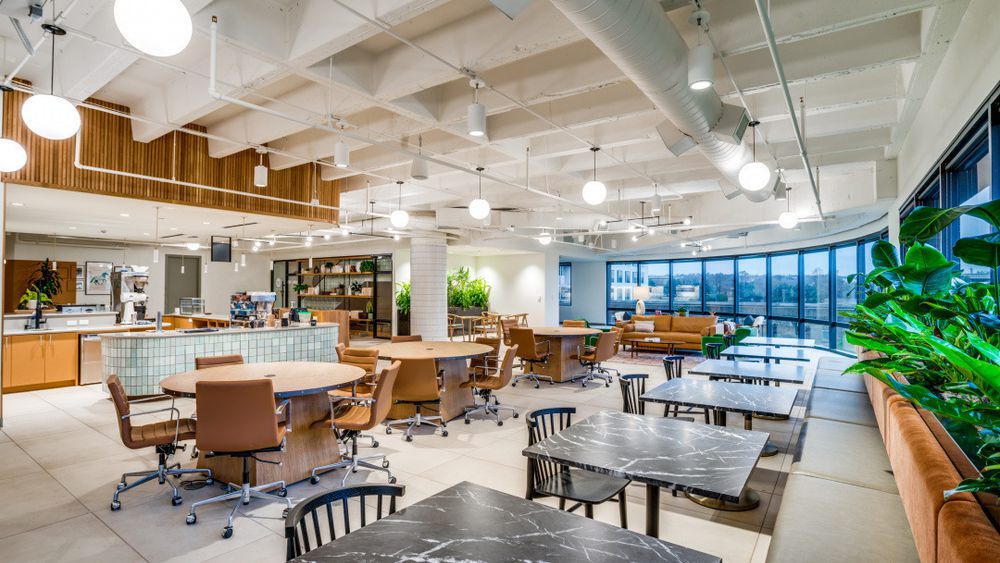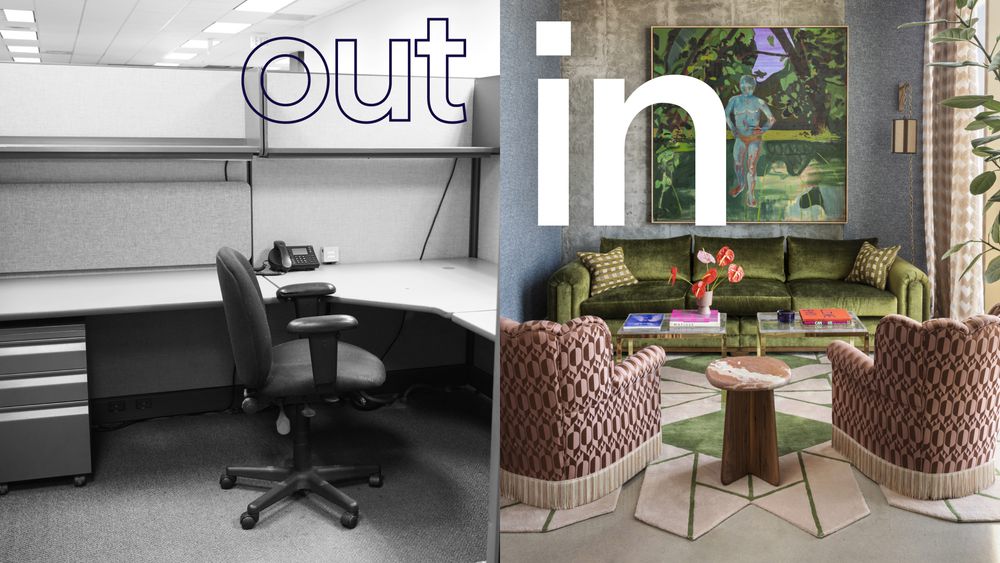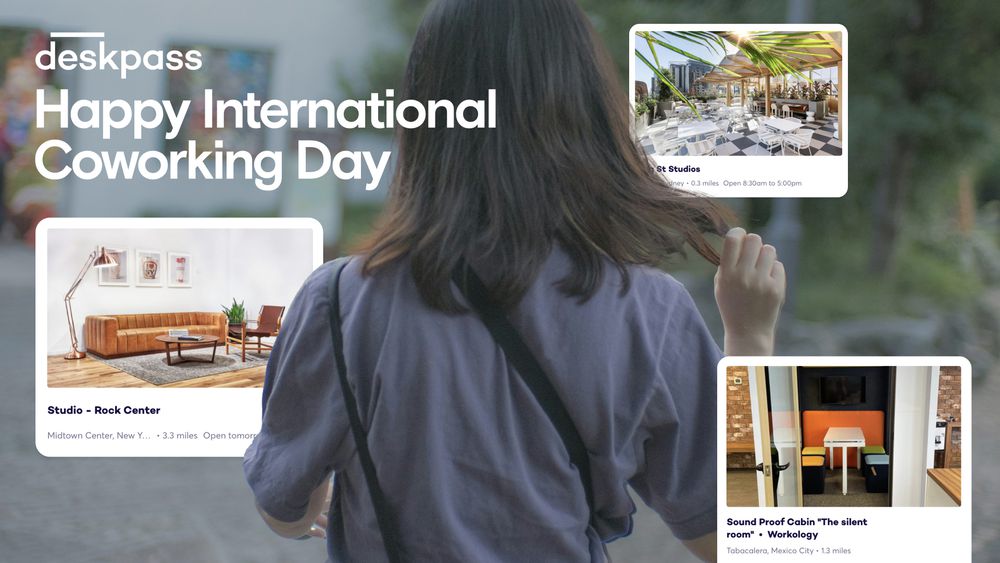Coworking spaces are becoming the “third space” for more and more working professionals. Not quite a corporate office, not quite a coffee shop, coworking spaces are vibrant communities that blur the line between working, networking, socialization, and even fun. Membership to these spaces comes at a cost that’s often proportional to the features, amenities, events, and opportunities they offer.
Coworking space costs can vary greatly from space to space, place to place. As is the case with anything, you get what you pay for: a private space in a Houston high-rise will cost you more than a hot desk in an up-and-coming Kansas City neighborhood. The key to understanding the cost of coworking spaces comes down to looking at all the variables involved—and what you’re getting for your membership dues.
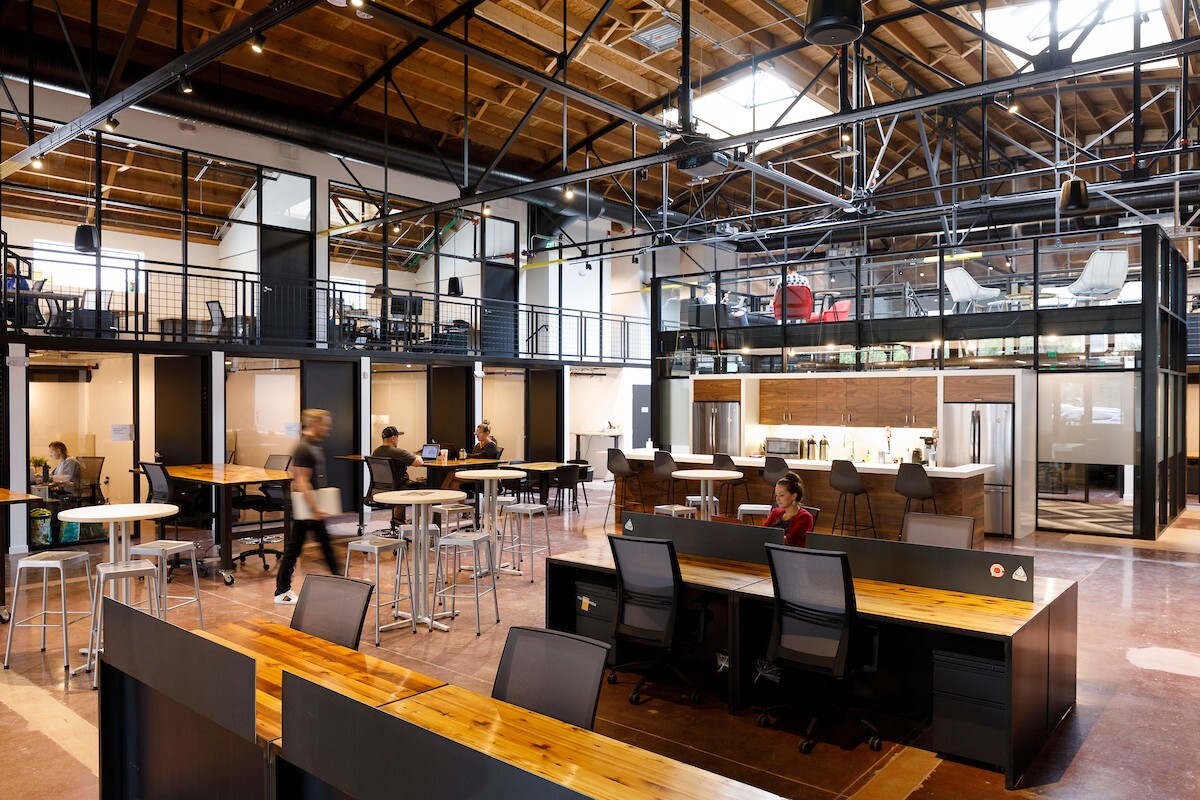
How much do coworking spaces cost? Here are some factors influencing the price
Understanding the cost of coworking spaces involves delving deeper into the price of membership. Various factors contribute to the cost you’ll pay to use the space and it’s these benefits that can make a significant impact on your coworking experience.
Here are some of the variables that dictate the price of coworking spaces across the country—and why you’re likely to find a range of costs when you start looking for a third space community to call your own:
Location. The location of a coworking space is a major factor in determining its cost. Spaces situated in prime urban areas or city centers typically come with higher price tags due to the convenience and prestige they offer. On the other hand, coworking spaces in suburban or less central locations tend to be more affordable, providing a balance between cost and commute.
Amenities. The range and quality of amenities available can greatly affect the cost of a coworking space. High-end spaces might offer amenities such as gourmet coffee bars, fitness centers, nap pods, and on-site childcare, which all contribute to higher membership fees. Conversely, more basic spaces might only provide essential amenities like Wi-Fi, printing services, and communal kitchen areas, resulting in lower costs. These essential offerings and amenities are typically what you can expect from a basic coworking space.
Access. Different membership plans cater to various needs and budgets. Options typically range from hot desks, which are the most flexible and economical, to dedicated desks and private offices, which offer more stability and privacy at a higher cost. Some spaces also provide virtual office memberships for those who need a professional address without a physical desk.
Community. The community aspect of coworking spaces is a significant value add, but it also influences cost. Spaces that host regular networking events, workshops, and social gatherings might charge more due to the added value of these opportunities for professional growth and socialization. The vibrancy and connectivity of the community can make a higher price worth it for many professionals.
Accessibility. Accessibility and operating hours can also impact the cost. Spaces that offer 24/7 access are often more expensive than those with limited hours, providing greater flexibility for members who need to work outside of traditional business hours. Additionally, coworking spaces that are easily accessible by public transport or have ample parking may charge more for the added convenience.
Additional Services. Many coworking spaces offer additional services that can affect the overall cost of a membership. These might include mail handling, reception services, IT support, or access to exclusive business resources and discounts. These services can add significant value—especially for startups and small businesses looking to leverage every possible advantage.
If you’re wondering what the difference is between a coworking membership that’s $50/month and one that’s $200/month, dig deeper into the variables above. Finding a space that fits your budget often comes down to looking at what you want to get out of your membership.
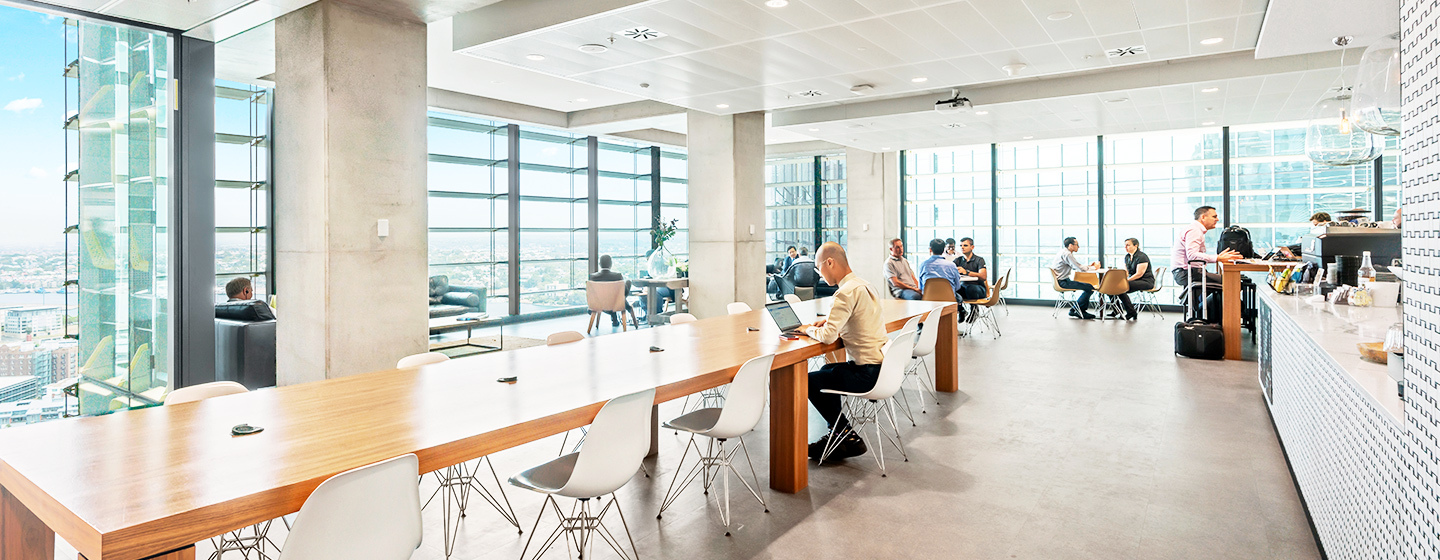
Comparing Coworking Space Costs
So what, exactly, should you budget for the cost of coworking access each month? To help you get a clearer picture, let’s compare some of the average costs of coworking spaces across different cities and regions—and look at how Deskpass can help you get more for your coworking dollar:
New York City. In the heart of Manhattan, coworking spaces command premium prices, reflective of the high demand and prime location. A hot desk can range from $400 to $600 per month, while dedicated desks can cost between $700 and $1,200. Private offices in these high-rise spaces can easily exceed $2,000 per month.
San Francisco. San Francisco, another tech hub, offers coworking spaces with costs comparable to New York. Hot desks typically cost between $350 and $550 per month, dedicated desks range from $600 to $1,100, and private offices can be upwards of $1,500 per month.
Chicago. Chicago provides a more affordable alternative to the coastal cities while still offering a dynamic coworking scene. Hot desks generally range from $250 to $400 per month, dedicated desks cost between $400 and $800, and private offices can be found for $1,000 to $1,500 per month.
Austin. Known for its booming tech industry and creative culture, Austin’s coworking spaces offer a balance between cost and quality. Hot desks are usually priced between $200 and $350 per month, dedicated desks range from $350 to $700, and private offices cost between $800 and $1,200 per month.
Kansas City. Kansas City provides some of the most affordable coworking options in the country. Hot desks can be found for as low as $150 to $300 per month, dedicated desks range from $250 to $500, and private offices are priced between $500 and $900 per month.
Prices will fluctuate from location to location. If you’re someone looking to move from space to space freely, a membership to one space (or several spaces) likely isn’t going to give you enough value to justify the cost of coworking. That’s why more and more digital nomads are exploring and experimenting with Deskpass.
Deskpass’ flexible model allows you to access a variety of coworking spaces in multiple cities. It’s a great way to get familiar with coworking spaces in your city (or while you travel), without committing to a single facility. You can pick and choose the space, location, amenities, and anything else you need on-demand.
Today, a high-end meeting space to impress your client; tomorrow, a cozy nook that’s close to home. Deskpass brings a new level of accessibility to coworking!
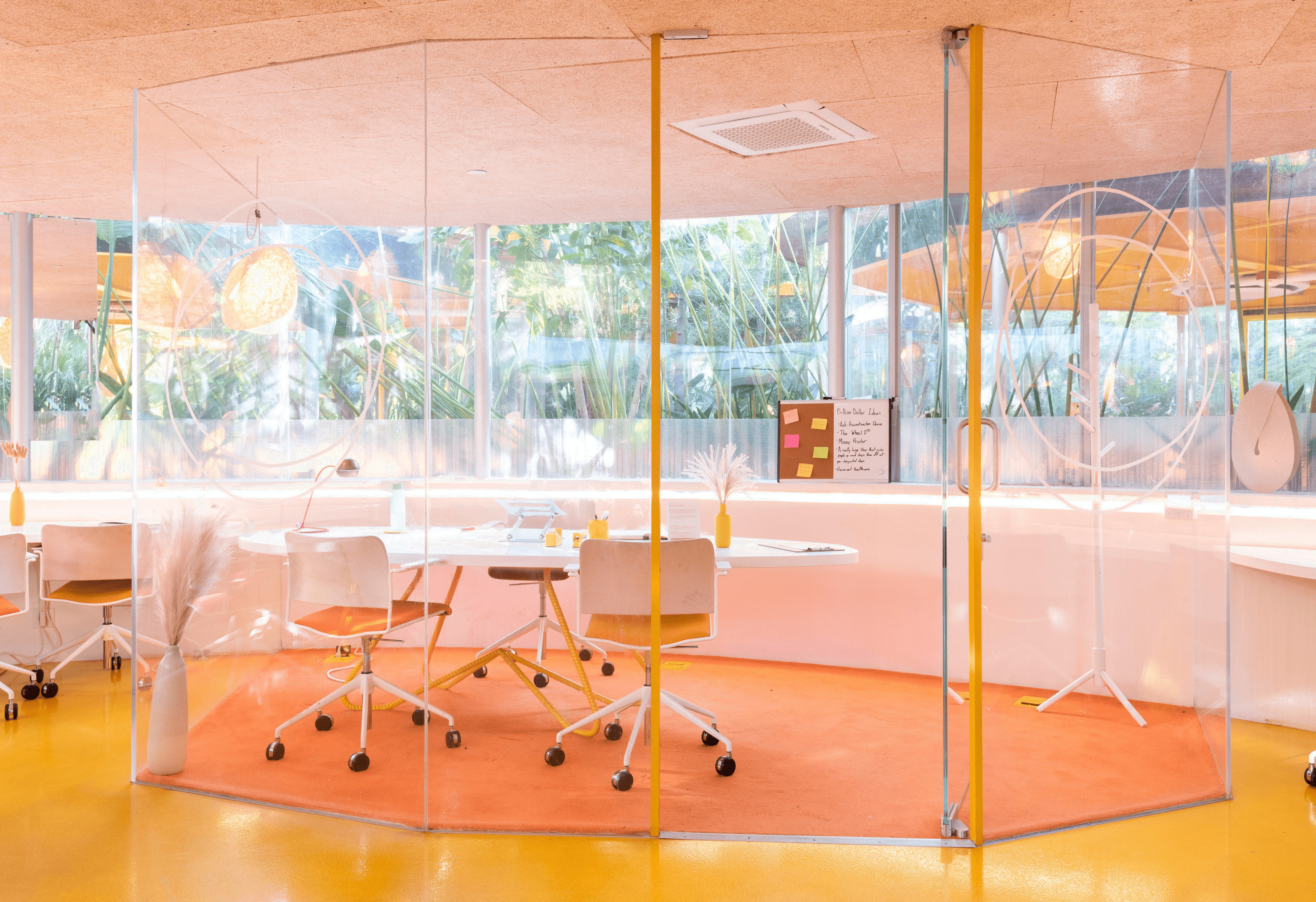
Breaking Down the Costs of Coworking vs. the Benefits
Coworking spaces continue to be popular because of their flexibility, community, and dynamic work environments—but are they worth the cost? To answer this question, it’s essential to weigh the costs against the myriad benefits they offer. For most, it paints a clear picture of value:
Business Operations. One of the significant benefits of coworking spaces is the ability to streamline business operations. For startups and small businesses, coworking spaces often come equipped with essential office infrastructure like high-speed internet, printing services, and conference rooms. This eliminates the need for significant upfront investment in office setup and ongoing maintenance. Additionally, coworking spaces offer flexible, short-term leases designed for scalability and cost-effective alternatives to traditional office space.
Networking Opportunities. Coworking spaces foster interaction and collaboration among members. Being surrounded by a diverse group of professionals can lead to valuable networking opportunities, potential collaborations, and even new clients. Many spaces host regular events, workshops, and meetups that provide platforms for members to connect and grow their professional networks.
Flexibility for Employers and Employees. For employers, coworking spaces provide the ability to scale operations up or down quickly without the long-term commitment of traditional leases. Employees enjoy the flexibility of working in different locations, which can enhance work-life balance and boost productivity.
Access to Resources. Coworking spaces often provide access to resources that might not be available in a traditional office setting. This can include advanced technology, professional development programs, and exclusive partnerships or discounts. Often, these resources are more than worth the cost of membership.
Empowering Environments. The vibrant and energetic atmosphere of coworking spaces can significantly enhance the work environment. Modern design, natural light, and comfortable furnishings create an inviting space that can boost creativity and productivity. The presence of like-minded professionals can also create a motivational and inspiring environment that encourages innovation and excellence.
Cost Savings. Coworking members typically don’t have to worry about utility bills, cleaning services, or facility maintenance—these costs are included in the membership fee. This can lead to substantial cost savings for businesses and employees alike, especially for small businesses and freelancers.
It quickly becomes clear that coworking spaces offer more than just a place to work; they provide a comprehensive environment that supports business growth, professional development, and personal well-being. While the cost of membership might seem high initially, the long-term benefits invariably make coworking spaces a worthwhile investment.
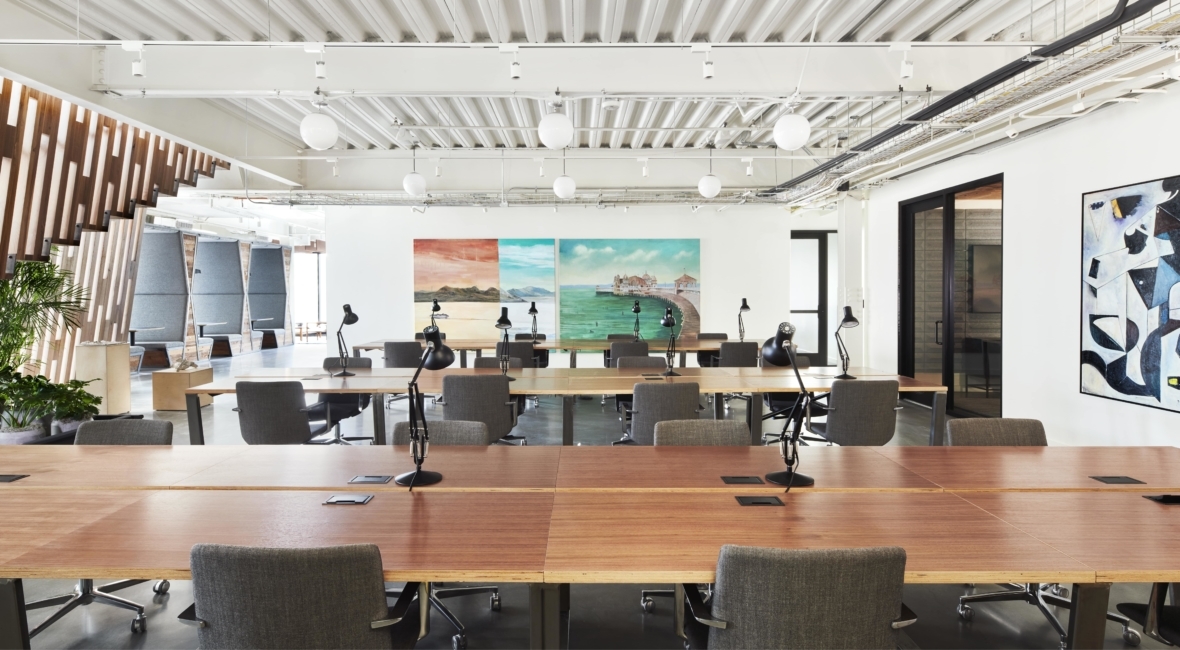
How to Decide if a Coworking Space is Worth the Cost
Determining whether a coworking space is worth the cost involves considering several factors unique to your personal and professional situations. Here’s a guide to help you assess if investing in a coworking membership is the right decision for you:
Step 1: Assess your business goals. If your goals include expanding your network, collaborating with other professionals, or accessing resources you wouldn’t have in a home office, a coworking space might be a valuable investment.
Step 2: Consider your work style. If you thrive in a dynamic, social environment where you can interact with others, a coworking space can offer the ideal setting. Conversely, if you need a quiet, private space to focus, ensure the coworking space you choose has private offices or quiet zones. A private office can provide the security and exclusivity you need to work efficiently.
Step 3: Determine your needs. Compare what different coworking spaces offer and see how they match your requirements. Ensure that the space you choose provides the essential amenities that support your work effectively. It’s also important to compare different coworking space providers based on pricing, locations, amenities, and access times to find the best fit for your needs.
Step 4: Analyze your budget. Calculate how much you’re willing to spend on a coworking space and compare it with the costs of different membership plans. This is also a good time to consider a Deskpass Teams solution!
Step 5: Factor in location and commute. Consider the location of the coworking space in relation to your home or other frequent destinations. A convenient location can save you time and reduce the stress of commuting. If you often meet clients or partners, a central location might also be beneficial.
Step 6: Evaluate the community. Visit potential spaces to get a feel for the community and see if it vibes with you. Engaging with a vibrant, supportive community can provide invaluable opportunities for networking, collaboration, and personal growth.
Step 7: Test out the environment. Many coworking spaces offer day passes or trial periods. Take advantage of these to experience the environment firsthand. This can give you a better understanding of the atmosphere, amenities, and community before committing to a membership.
Step 8: Explore membership plans. Look for coworking spaces that offer flexible membership plans. Whether you need a hot desk a few times a week or a dedicated office full-time, the right plan should accommodate your needs.
Having a clear understanding of your needs, wants, and expectations is an important part in getting the best value out of a coworking membership. Paying a higher price for a premium space isn’t a bad thing if you’re getting great value out of your experience. Likewise, spending a small sum on a simple space that gives you only what you need can make the cost of coworking feel nominal. It all comes down to personal preference!
How Deskpass Makes Coworking More Affordable
For those who want the freedom to move from coworking space to coworking space freely, the cost of any membership can seem too steep. Traditional memberships lock you into a flat monthly fee, regardless of how often you use the space. It’s a barrier for those who work sporadically or on-the-go.
Deskpass tackles this by offering more affordable, flexible approaches to coworking:
Our Deskpass Teams model is ideal for companies with remote or distributed teams. Instead of leasing out a whole office, you can grant your team access to a vast network of workspaces around the world. They can pay-as-they-go for desks, meeting rooms, and private offices by the hour, day, week, or month. Conference room access is also available with flexible pricing to suit your needs.
For freelancers and solopreneurs, Deskpass offers Instant Workspace. This on-demand option lets you book a workspace whenever you need it, from inspiring cafes to professional business centers. With pricing starting as low as $15 a day for a desk, it’s a budget-friendly way to escape the monotony of home offices and tap into the vibrant coworking scene without being tied to any single space.
Compared to single coworking spaces, Deskpass offers unparalleled flexibility in terms of pricing and usage options. Deskpass gives workers the same level of flexibility in choosing where they work as a coworking space gives them in how they work. It’s designed to deliver maximum value for those who need, want, or expect to have total control over their remote work circumstances.
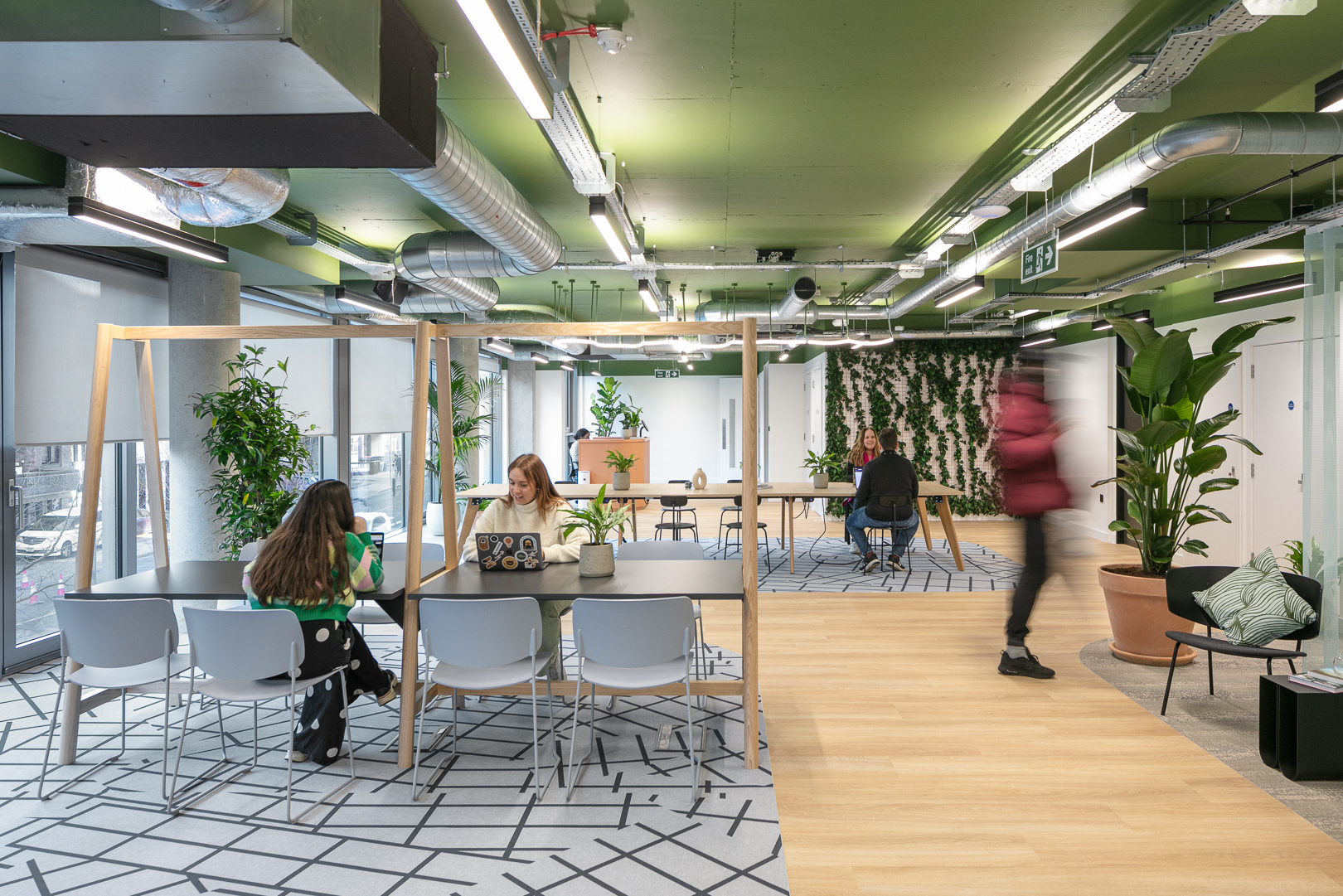
Managing Coworking Costs? Focus on Value.
At the end of the day, coworking spaces are dynamic outlets for professionals: whether you’re focused on work, interested in networking, or simply looking for a third space that fits your vibe. Access comes at the price of a coworking membership; however, it’s important to look beyond the cost to see a picture of total value.
A desk for the day in the heart of Manhattan might cost more than a monthly membership to a simple coworking space in Kansas City. This doesn’t mean one space is necessarily better than the other—it all depends on who you are and what you need from your coworking experience. The costs may differ, but the value might be similar in the eyes of different remote workers.
The question isn’t “how much does a coworking space cost?”; it’s “what value does a coworking membership offer?” Only you can answer that question. And, if you’re struggling to find a point where cost meets value, you might choose to forgo the membership to any single space. Deskpass is ready to help you get the most out of your coworking dollars, with access to the space and amenities you need today, and every day.
